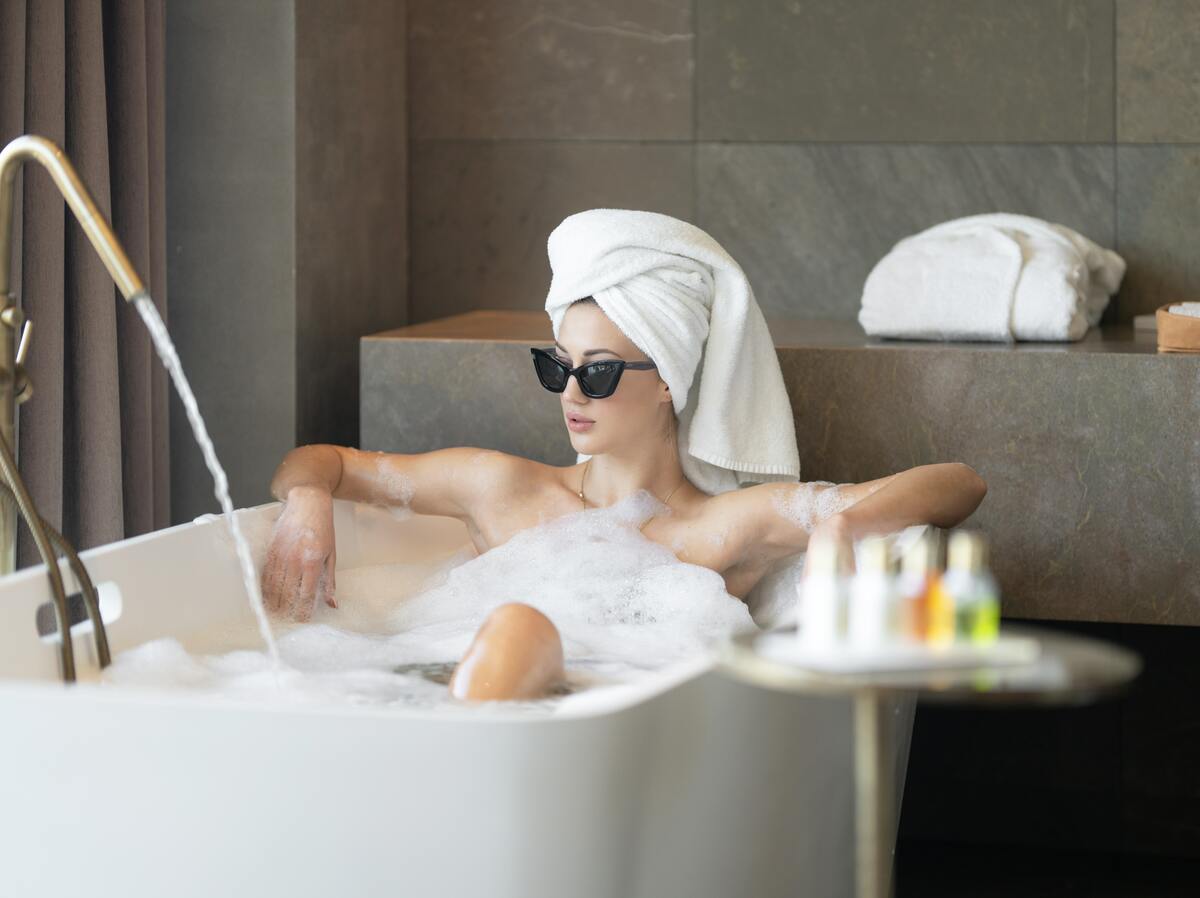
If relaxing baths aren’t already part of your self-care routine, they should be. First, however, you need to know how to have a relaxing bath. You need to know what to put in the bath, how to set the right ambience, and we’re here to give you tips on what makes a bath extra relaxing.
Notice how taking a bath made our list of the top 10 self-care activities. Once you start taking baths to relax, you’ll soon be hooked. Even if you’re not a bath person, you might be converted once you master how to have a relaxing bath.
Below are some tips on how to have a relaxing bath at home:
1. Set the Mood with Candles
The harsh and bright lighting from your bathroom ceiling is no good if you’re trying to master how to have a relaxing bath. The soft glow from a few candles is much more relaxing. To create an even better ambience, diffuse some soothing essential oils in your bathroom with a diffuser. This creates a spa-like atmosphere in your bathroom.
2. Run the Bath with Warm Water
If you’re wondering how to have a relaxing bath, know that it’s a lot more relaxing when the bath water is the right temperature. If it’s too scalding hot, it won’t be comfortable or relaxing. If the water is too cold, your muscles won’t relax the way they will in warm water. As you’re running the bath, keep checking the water’s temperature to ensure it’s warm but not hot.

3. Add Epsom Salts
Add about 1-2 cups of Epsom salts to your bath water. Epsom salts help soothe sore muscles, and they can even help reduce bloating. The minerals in the salts are good for you, and some Epsom salts are even relaxing scents such as lavender Epsom salts. You’ll likely find that your skin feels softer after an Epsom salt bath, since Epsom salts are natural exfoliants that can soften dry or rough skin.
In addition to Epsom salts, you can also add bubble bath. Some people love foam and bubbles in their bath, and others don’t, so experiment with bubble bath and see if you like it.
4. Consider a Bathtub Pillow
You can get a bathtub pillow from Amazon with suction cups that stick to the bath, or you can make your own pillow by rolling up a towel and placing it at the base of your head while you’re in the bath. When you’re trying to relax, it can be a bit uncomfortable laying in a bath without a pillow, so keep that in mind as you’re setting up your bath.
5. Create a Spa Playlist
While it may be tempting to listen to the podcast you’re addicted to while you have a bath, this is meant to be relaxing for your body and mind. You should therefore create a calming spa playlist to be on while you’re having a bath.
As you listen to the calming music, take some deep breaths while you’re in the bath. During a bath is a great time to do some stress-reducing breathing exercises.
6. Pour Yourself a Glass of Wine or a Cup of Tea
Why not sip on a glass of red wine, or a cup of chamomile tea while you have a bath? This is meant to be your downtime, your time for self-care. Many people buy a bath caddy which is a small wooden tray that hooks to either side of your bath, in case you want to enjoy some dark chocolate, red wine or tea while you have a bath.
Are You Still Feeling Stressed After Your Bath?
If mastering how to have a relaxing bath still doesn’t help reduce your stress, and you’re still feeling anxious or stressed after your bath, there could be a reason. You may suffer from a mental health disorder such as an anxiety disorder, or you may have a genetic predisposition to be more of a ‘worrier’. A CircleDNA test is an at-home DNA testing kit that can reveal whether or not you’re genetically more likely to worry more. These personality insights are some of hundreds of reports about yourself you can learn through CircleDNA.







Comments are closed.